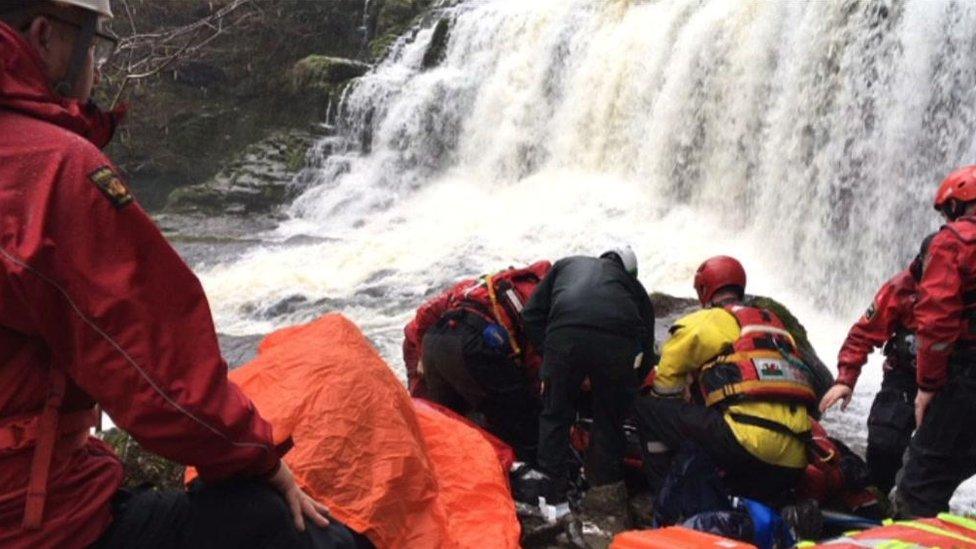'Before this happened I thought I was immune'
- Published
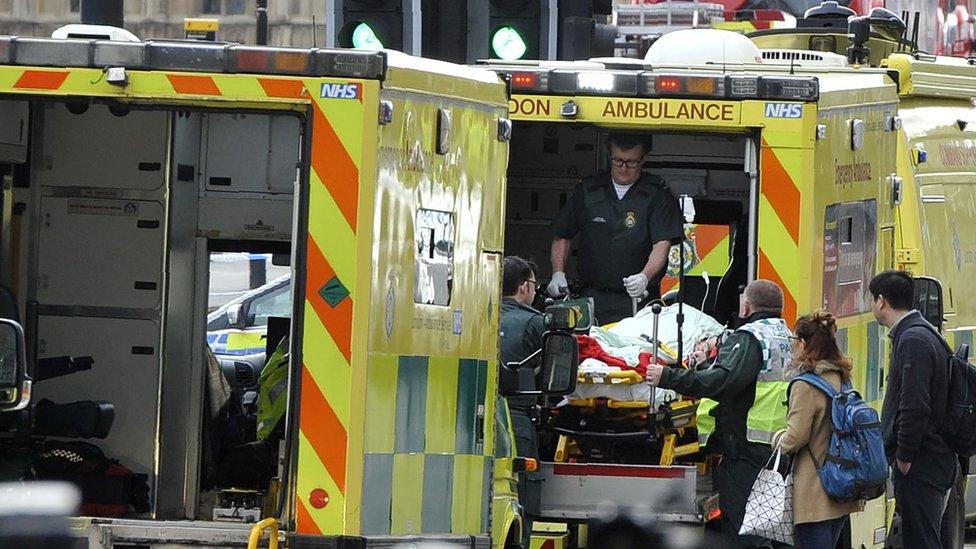
Emergency services were first on the scene at several terror attacks in 2017, including at Westminster Bridge in London
Paramedics are only ever a 999 call away from an experience that could change their lives forever. While some might have the good fortune never to have to respond to an emergency like the Grenfell Tower fire or the Manchester Arena bombing, others will have to live with the consequent mental scarring.
According to the mental health charity Mind, ambulance workers are twice as likely to suffer mental health problems than the general public - but they are also much less likely to reach out for support.
So who is there to help the people who help us at our times of greatest need?
'I thought it would never affect me'
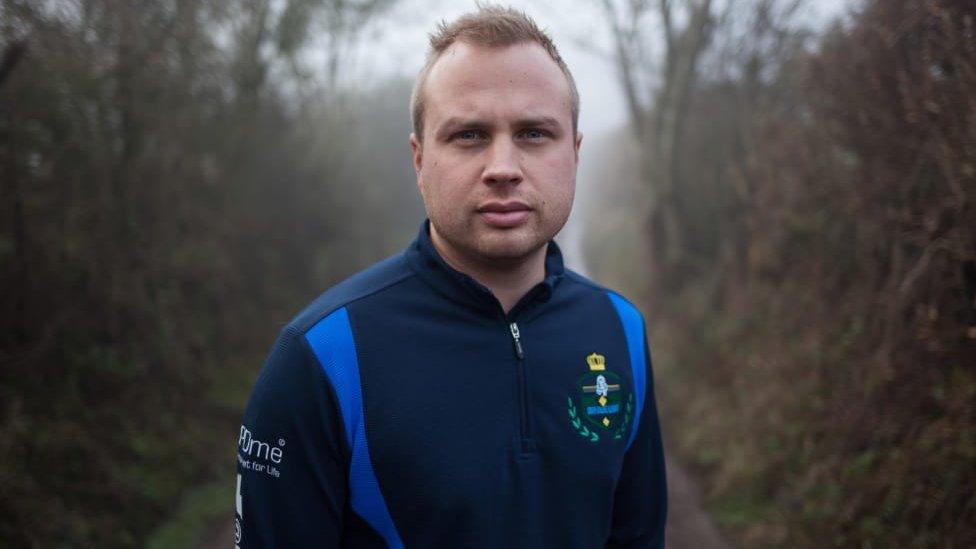
Dan Farnworth set up his own charity to help emergency service workers with mental health problems
Father-of-four Dan Farnworth says a 999 call he attended in 2015 completely changed his life.
He had been with North West Ambulance Service since 2004 as an emergency medical technician, but a callout to the scene of a murder of a child hit him hard.
"Before this happened, I thought I was immune to mental health issues - it would never affect me," the 32-year-old said.
At first he just felt low, but after about 24 hours he realised he was still struggling.
"I couldn't shake the image of the child."
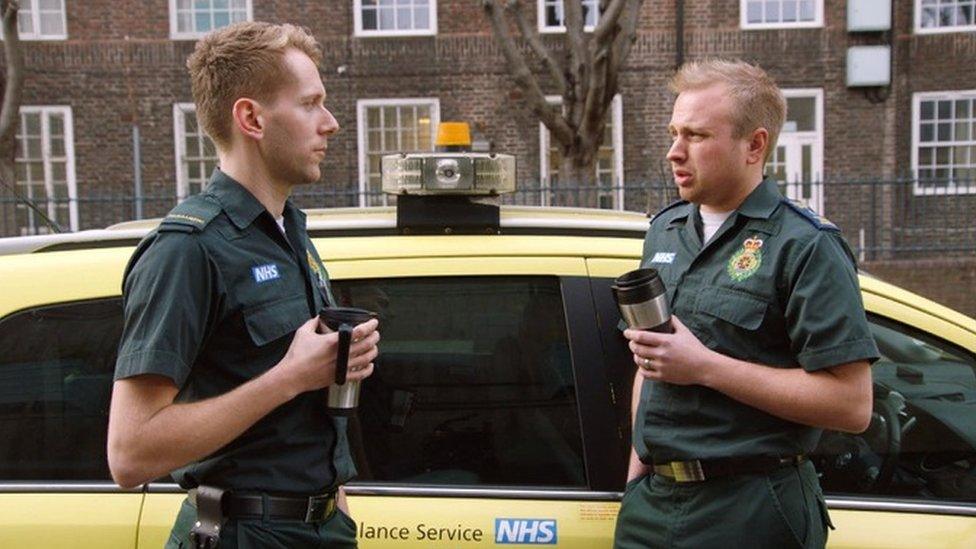
Rich and Dan want to open up discussions about mental health problems
Dan found it changed the way he behaved, both at work and with his family, and he suffered nightmares.
He eventually reached out to friend and fellow paramedic Rich Morton - something he says saved his life because it spurred him to get help.
Dan was signed off work for five months with post-traumatic stress disorder (PTSD).

You might also be interested in:

The friends eventually went on to set up their own charity called Our Blue Light, external, of which Dan says he is "immensely proud".
They work to open up discussions about mental health in the emergency services and to make sure people know what to do when a colleague is in mental health crisis.
"It isn't something you're taught; we may learn CPR but not what to do when it is a mental health problem - and it is so important."
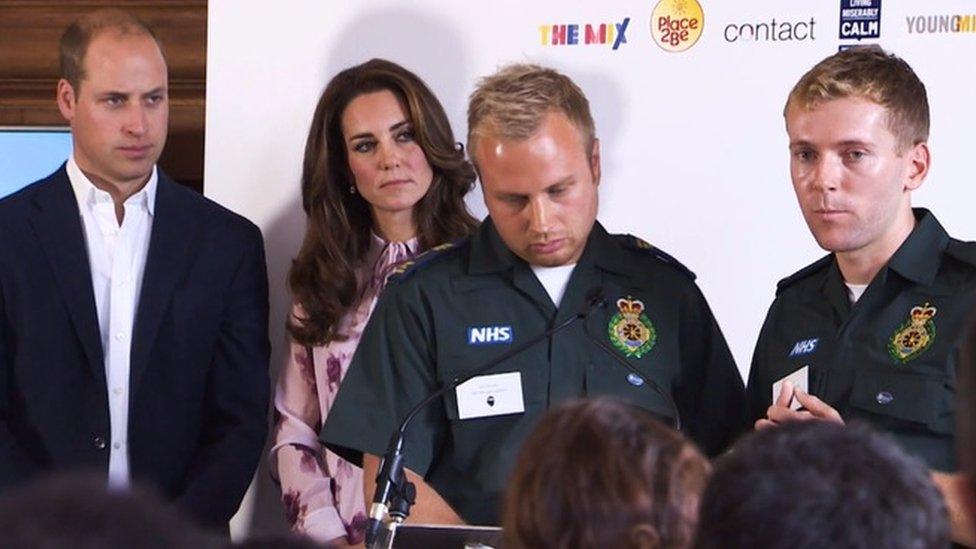
The charity's work has seen the friends involved with the Heads Together campaign, along with the Duke and Duchess of Cambridge
He has also worked with the Duke and Duchess of Cambridge and Prince Harry as part of their Heads Together campaign, external.
Dan has recently been awarded a Churchill Fellowship, external, which will fund a trip to the United States and Canada to research a report for Parliament about how their emergency services tackle the issue of mental health.
He said: "I feel quite good at the moment, I have taken a lot of comfort from being able to help other people.
"I've also built up my own resilience and have been able to accept that it isn't always going to be OK. I'm more self-aware, which is a great thing."
'We are not superhuman'
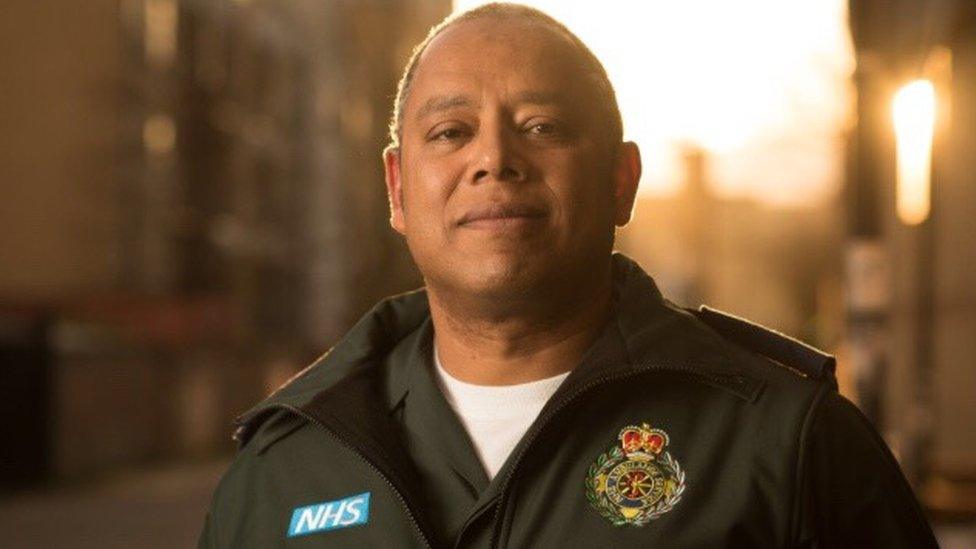
Esmail Rifai says he blamed himself after a colleague took his own life
"There is this picture I've seen of Superman and he's in the supermarket and he is crying his eyes out," said 52-year-old Esmail Rifai, a veteran of 27 years with North West Ambulance Service.
"That is how I felt at the time. People see us as superheroes, that we can do anything, but in reality we can go home and, quite often, can have a massive breakdown."
Two years ago, he had a mental breakdown and spent time off work from his role as a paramedic to receive one-to-one counselling.
He said: "I remember all the horrible jobs to this day. Not just visually; the smell, the taste in my mouth. I think [this is] something everyone from the emergency services will find.
"For me, my breakdown was a combination of lots of different things: the pressures of work, that knock-on effect on your personal life - you can't help but take things home."
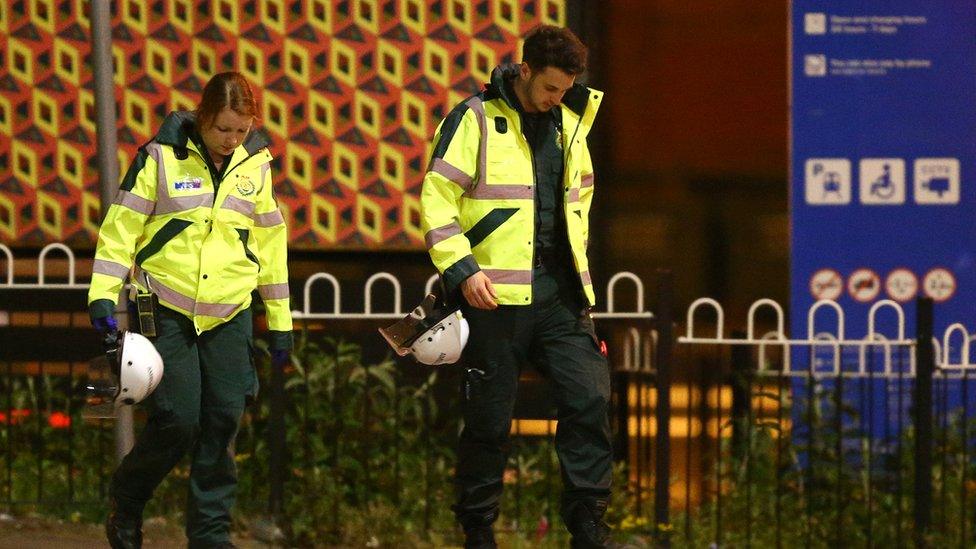
North West Ambulance Service, whose paramedics treated patients following the Manchester bombing, says events like these are "bound to have a lasting effect on our staff"
But shortly after Esmail came back to work, a colleague killed himself. He said he felt "personally at fault".
"I could have spoken to him, could have helped him. I was upset that he didn't open up to anybody, or felt he could not open up to anybody.
"I thought, 'I need to think, I need to do something, to avoid them getting to that stage in life where they feel they have nothing to live for'. It helped me to focus on something."
Esmail now works for the ambulance service as a clinical safety practitioner and with the charity Mind as one of its Blue Light Champions, external, promoting its project.
He said: "Being involved has also given me some solace. Knowing that I'm helping others in itself makes me feel good, gives me a sense of achievement.
"There is no shame or stigma attached to experiencing mental health problems - it's just the same as breaking a bone, except no-one can see that you are suffering.
"We are not superhuman and we are just as prone to illness as anyone else, if not more."
'Some calls always remain with you'
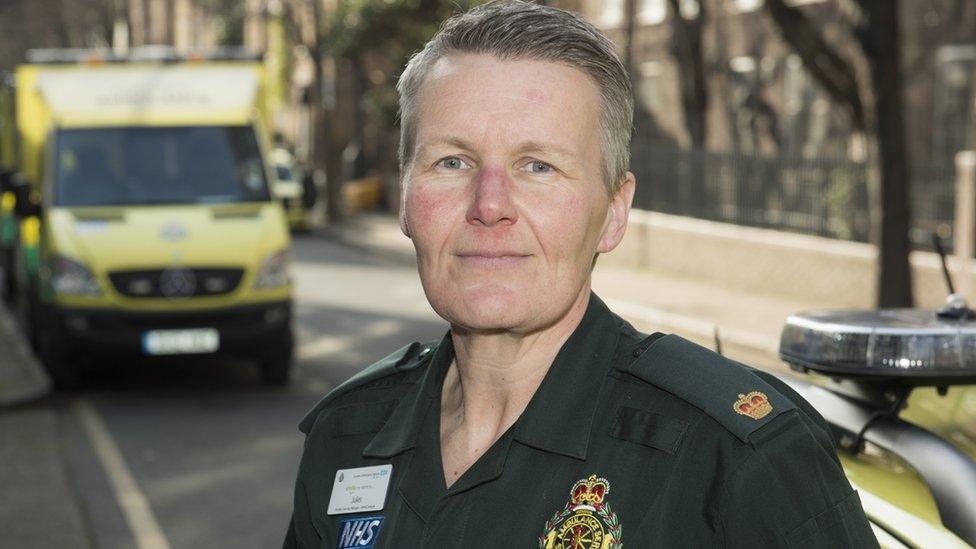
"I would not do this job if I didn't care - we naturally care; that is why we do what we do"
As Jules Lockett points out, it's not just paramedics who can experience extreme pressure.
Though she doesn't work on the front line like some of her colleagues, there is extreme pressure on her in her role at the London Ambulance Service, where she has been employed for 18 years.
"I think there is always a call, or a handful of calls in your career which always remain with you," said the 48-year-old, who started out as a call-handler in the emergency control room.
"You get a response when you can relate it to your nan, your aunty or your uncle. Some of the calls are really distressing: people hanging, or in cardiac arrest. Those calls still stay with me.
"But they also really make you feel that's what you are there to do; it isn't just about giving instructions."
The service's current head of training says she has seen greater pressures on its workers, with the average number of calls reaching 5,000 in a 24-hour period.
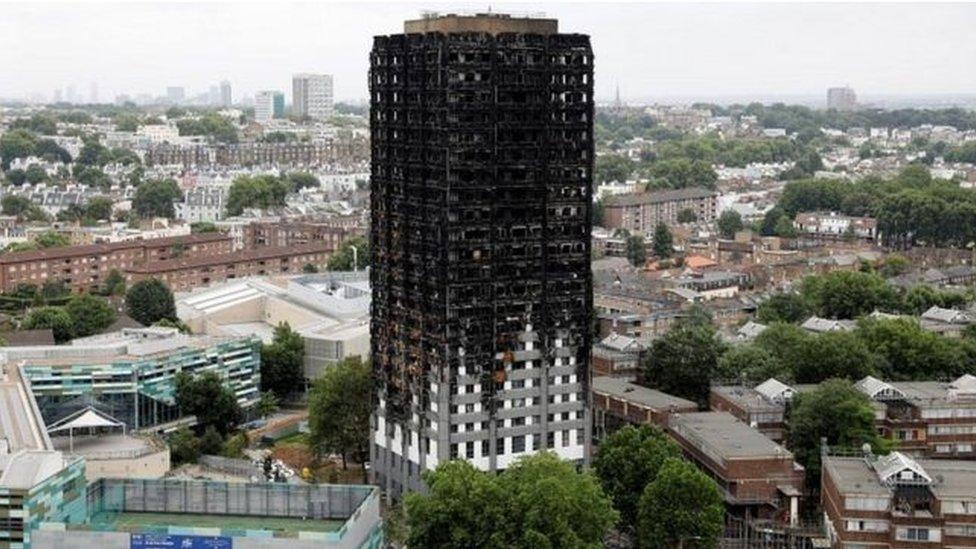
Some of the members of the emergency services who attended the Grenfell Tower fire have suffered personal trauma as a result of their experiences
"It is sometimes quite difficult to try and convey the sentiment you want to someone when you are on the phone. You want to put your arm around them and give them a hug and make them better."
For Jules, her mental health problems weren't directly related to her work, but she said it was the support of her ambulance "family" that helped her through it.
She underwent surgery on her back before joining the service, which brought on a period of depression, and, when she found she needed more surgery about five years ago, she talked it through with her workmates.
"I think it is important to ask people for support, and sometimes your colleagues will be critical to help get you through the tough times."
She said London Ambulance Service has promoted discussion about mental health and provides support in the workplace.
It offers resilience training, counselling services, a peer support network and has recently set up two quiet zones near the control rooms in Waterloo and Bow, where staff can go when they need time to reflect.
'The nightmares would be horrendous'
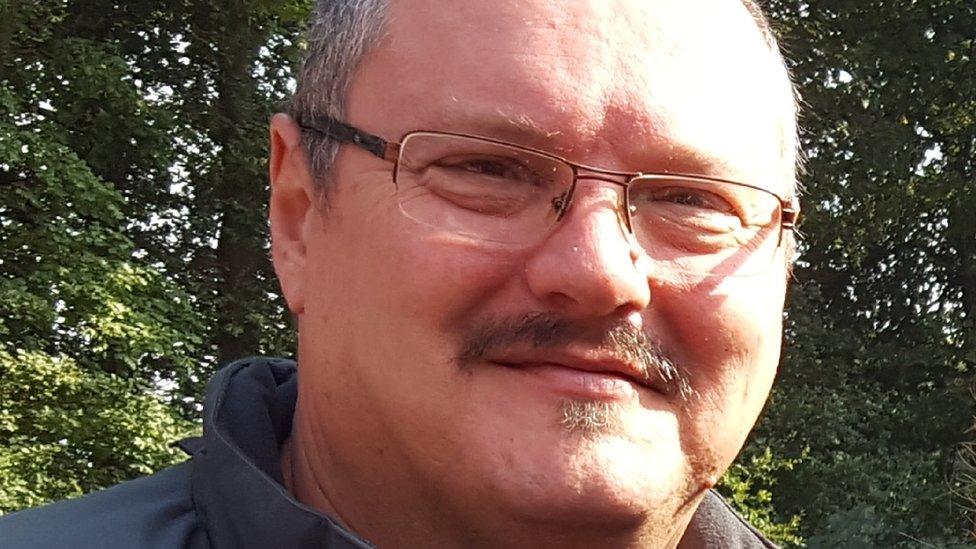
Peter Morgan was diagnosed with PTSD after he left his job as a paramedic
Peter Morgan says his problems came years after he stopped working in the ambulance service.
He was a paramedic for 10 years, covering Bedfordshire and Hertfordshire, before leaving the service in 2003.
But when a friend was killed in a road traffic accident about five years later, his mental health went into decline.
"It would be flashbacks, the nightmares would be horrendous, I would wake up pool of sweat - it was awful," said Peter, 51, who would go on to be diagnosed with PTSD.
"The nightmares would start off being memories from the past, jobs I'd been to, then they started to change, almost like something from a horrendous fiction-horror where I would be surrounded by body parts.
"Totally away from reality, but for me it was extremely real."
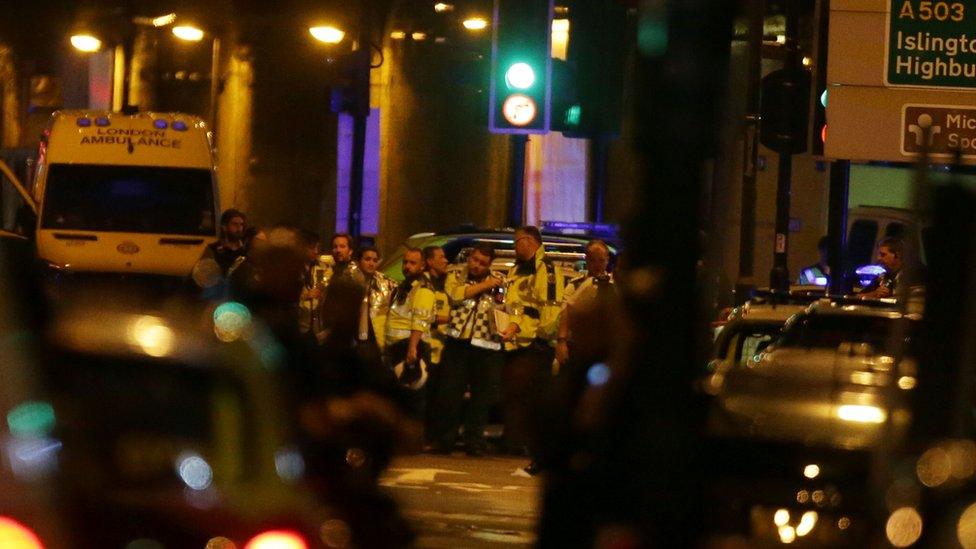
Emergency services at the scene of the attack by Darren Osborne near a mosque in Finsbury Park in June
Peter's wife Tina was instrumental in realising he needed to get help and approached the Ambulance Staff Charity, which is based in Coventry, not far from their home in Rugby.
He started therapy and this helped him understand the triggers for his episodes, such as the sound of helicopters or sirens.
"With the ambulance service, you've got anything from a cot death to a road traffic accident; you spend your day going from picking little old Mrs Jones off the floor because she fell over to five people dead in a car crash.
"It is going from one extreme to another within the space of, like, five hours. For some, it gets to a point where you can't take it.
"Nowadays, the emergency services understand what PTSD is. I don't think anyone did before, and that was a problem.
"Now there is more awareness and a realisation that every job is loading on a little bit more."

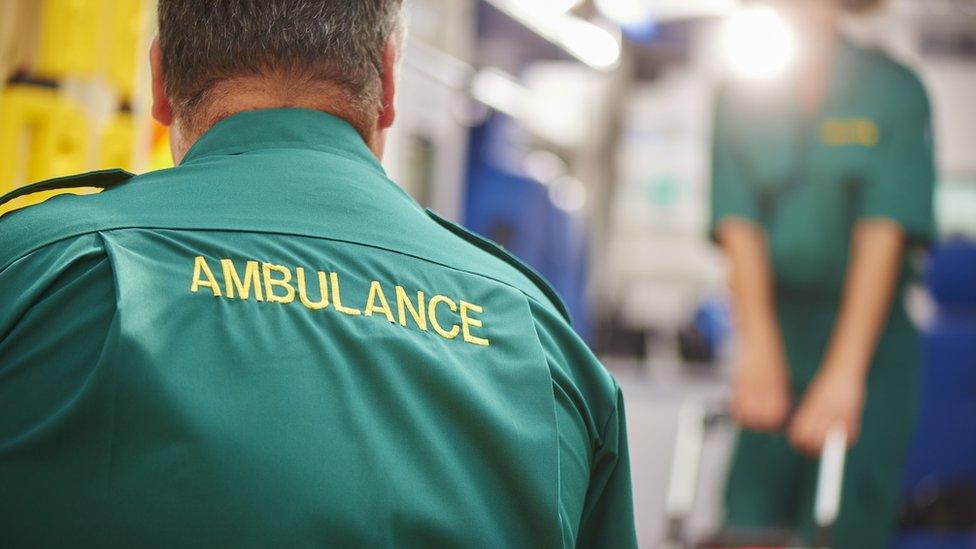
Addressing mental health problems within the emergency services is not simply a matter of offering support to those in need, according to Mind's Blue Light Programme manager Faye McGuinness.
Part of its work also involves training people to be more aware of the issues colleagues might face.
"People think it is all trauma-related, but what people have what told us is that organisational factors are impacting more negatively: things like long working hours, shift patterns and the stigma surrounding mental health.
"We have most definitely have seen a change - we have been quite overwhelmed with the reaction within a group we thought would be difficult to reach.
"There is definitely still work to do - you don't see things change overnight - but we are starting to see organisations change the way they view mental health wellbeing.
"It is a long-term commitment."
- Published30 March 2017
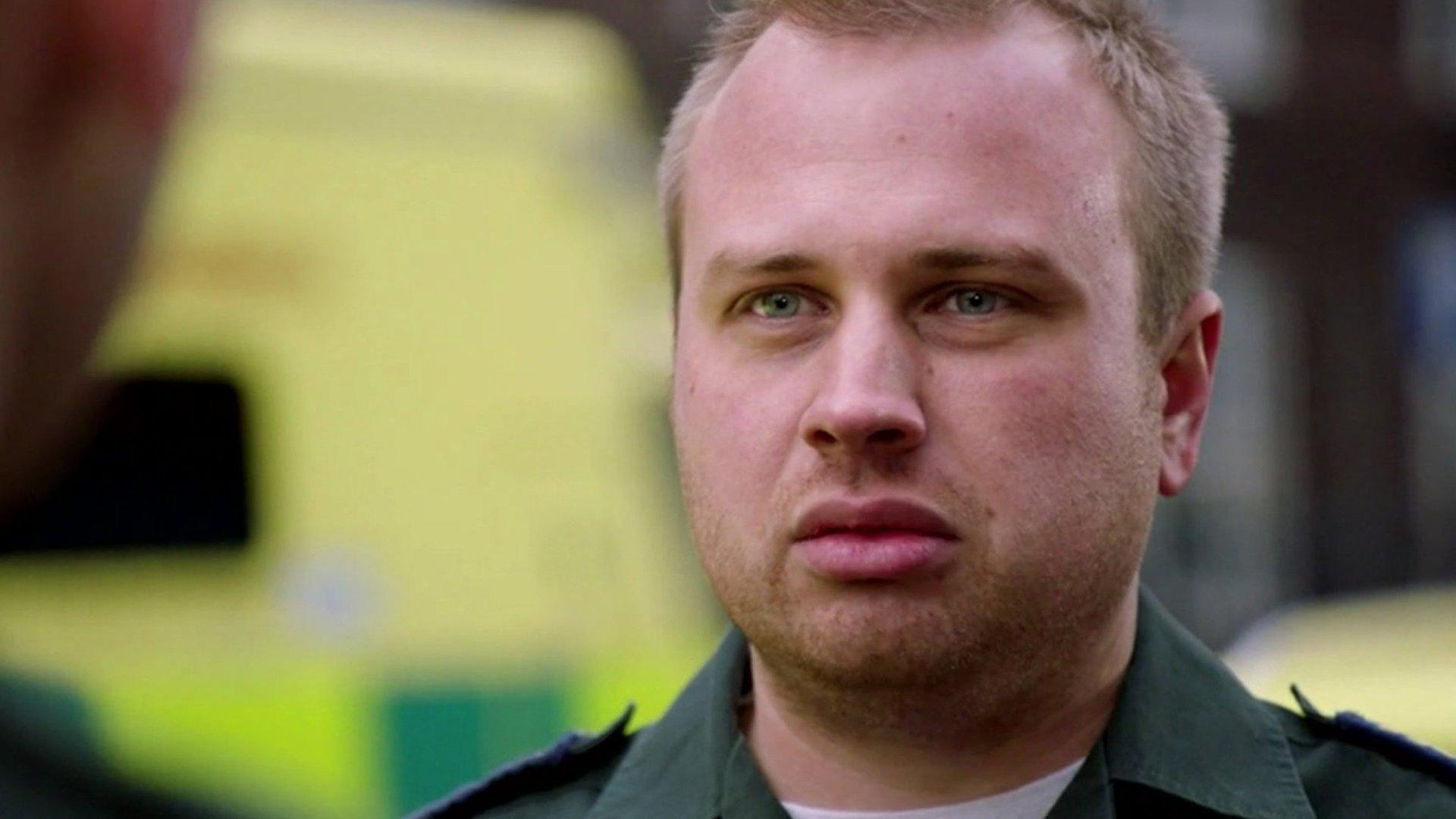
- Published26 October 2017

- Published17 September 2017
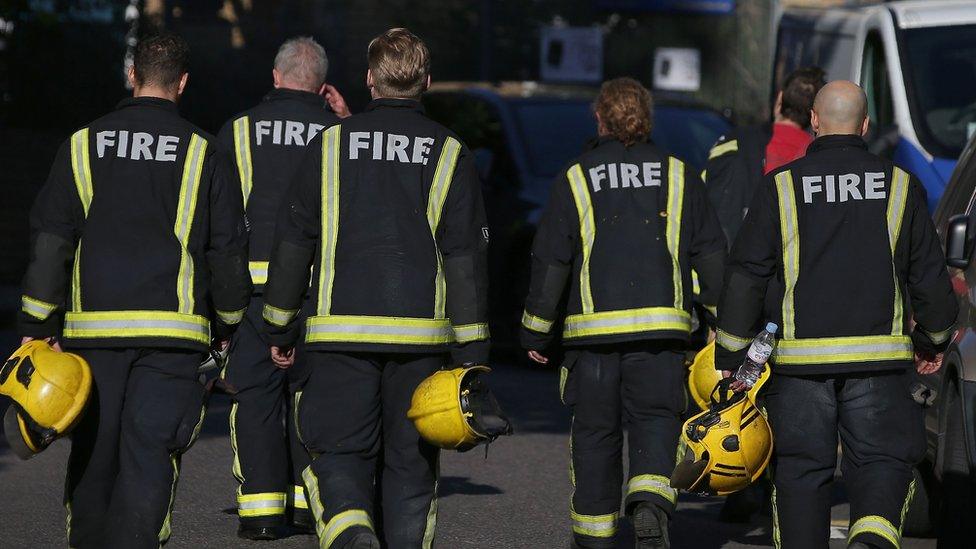
- Published18 August 2017
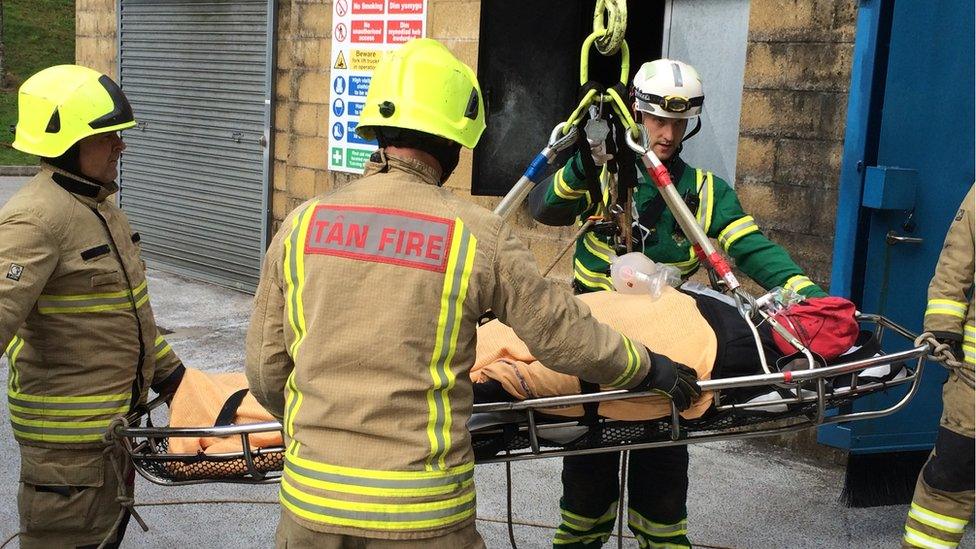
- Published27 April 2017
